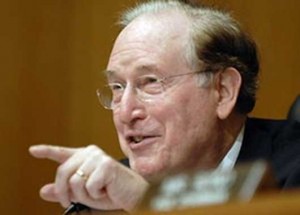
The Senate will lend a friendly ear to dealers, concerned about cuts at GM and Chrysler, but it's unlikely they can do anything to save close to 3,000 retailers slated to lose their franchises.
Federal bankruptcy Judge Arthur Gonzales is expected to issue a ruling from his New York courtroom, today, on Chrysler’s plan to terminate 789 of its dealers, the same day that Washington lawmakers will take up the debate over those cuts and General Motors’ plan to terminate 2,000 of its own retailers.
Both makers insist they need to make the reductions in order to maintain a viable, competitive distribution network that can effectively compete against their import rivals. But opponents insist that such claims are overblown, that the makers will wipe out thousands of independent businesspeople, eliminate tens of thousands of jobs and devastate communities around the country.
Both makers have already been hit with lawsuits aimed at blocking the proposed cuts, though with GM and Chrysler both under court-ordered bankruptcy protection, it appears highly unlikely such measures would do much, especially if Judge Gonzales and the judge in the GM case, rule in favor of the automakers’ plans.
In the Chrysler case, a group representing about 300 dealers are hoping to block the dismissals. Observers say the motion is unlikely to succeed, as Judge Gonzales has ruled in favor of Chrysler and the White House – which helped draft the automaker’s turnaround plan – in almost every instance.
 Lawmakers, however, have threatened to intervene separately. A proposal floated by Texas Senator Kay Bailey Hutchison – and later withdrawn – might have blocked federal aid for the two makers if they didn’t take steps to assist their dealers.
Lawmakers, however, have threatened to intervene separately. A proposal floated by Texas Senator Kay Bailey Hutchison – and later withdrawn – might have blocked federal aid for the two makers if they didn’t take steps to assist their dealers.
That doesn’t mean Congress is giving up on the matter. GM CEO Fritz Henderson and Chrysler Vice Chairman Jim Press will be among those testifying before the Senate Commerce Committee, today. The meeting was called by the committee’s chairman, West Virginia Senator Jay Rockefeller, who wrote that, “The egregious time frame and terms of these franchise terminations seem unprecedented to me.”
Congress’s concerns are not surprising. The nation’s roughly 20,000 new car dealers are a potent political force. They contribute large sums of money to favored candidates’ campaigns — $9 million during the 2008 federal elections alone — and their stores are a major source of local and state revenues. According to trade group estimates, the typical showroom employs at least 50 personnel, everyone from the sales and secretarial staff to the mechanics and vehicle “preppers.”
New and used car purchases generate anywhere from 12 to 15% of most states’ sales tax revenue, according to the Center on Budget and Policy Priorities. In California, the state Department of Finance puts the figure at 10.6%, making it the single-largest component of the sales tax base. California’s coffers have already been drained by a recession that’s seen overall U.S. new car sales decline by 47%, since the industry’s heydays, early in the decade, selling more than 17 million vehicles a year.
The Golden State is expected to lose more than 100 GM retailers and 32 Chrysler dealers. How that will actually impact sales tax revenues is uncertain. For the most part, those customers now buying cars will likely find another showroom – and possibly, a different brand – to turn to. But the impact on jobs could be substantial. A rough estimate would suggest that at least 6,500 California workers will be sent to the unemployment lines.
Not everyone is arguing against the cuts. In an interview with CNNMoney, Michael Jackson, head of the giant AutoNation dealer network, revealed that his chain will lose 10 or 11 showrooms, when the cuts are completed, but he said, “I think they picked the right ones,” referring to the criteria GM and Chrysler have said they relied on to determine which franchisees would be dropped.
Among other factors, the automakers reportedly looked at not only sales numbers but the financial health of their dealers, as well as their customer service scores. Many of the showrooms being closed were located in what the carmakers saw as the wrong parts of a changing communities, and often, the dealers handled just one or two brands, rather than a collection of different divisions. Chrysler, for example, has been trying to consolidate its surviving Chrysler, Dodge and Jeep brands into single stores.
“I think fewer, more focused and better is a much better approach,” said GM CEO Henderson, on Monday, referring both to the dealer count and the decision to eliminate half of the company’s brands.
During a discussion with reporters, called to discuss his company’s bankruptcy filing, Henderson said GM “is sitting down with any dealer that (wants to appeal a termination notice) and try to look at their facts. There aren’t, to be honest, very many reversals of those decisions, but nonetheless, I think it’s thoughtful — it’s incumbent upon us to look at the facts, because in some cases we have made some mistakes, and so we’ll correct them.”
